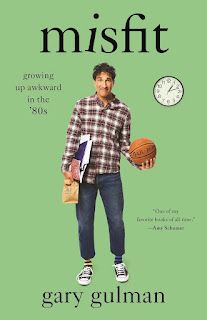One from the vaults: There was some anthology called Pop 101 that I almost had a piece in, but either it never came out or they dropped me from it and I didn't get the note. But here's that essay from 1997 about 1979--oh, nice symmetry--that will tell you more than you need to know about young me. And maybe young some-of-yous, too.
I WANT ME TO WANT ME
I want me to want me.
Living all the subtraction of adolescence in New Jersey suburbia, hanging out in each other’s basements. An innocent age, the 1970s, and we ached with crushes we thought were love. Of course, we just wanted to get our rocks off.
Add up all that wanting, multiply by all that not getting, and infinity plus one seems like an actual possibility. The mall didn’t cut it. Anthony Matarazzo’s 440 Plymouth Road Runner didn’t cut it. Even Saturday Night Live, back when it was good, didn’t cut it. As for the rest of TV, we somehow knew Lauren Tewes, who played Julie, ship’s social director of many of our dreams, however perkily lustable, would be a washed up druggie by 1985. That Love Boat always ended up back in port where it started.
Which gets me to Cheap Trick, who, for a couple of years there, me and millions of teenagers loved. A perfect image for male teendom: the band is half beautiful boys and half unlovable losers. And as for the girls: just the name Robin Zander could make damp many a nubile’s sweet underthings. Or so us boys thought. This boy, though, was no Zander. Instead Huntz Hall look-alike Rick Nielsen seemed more like me, nerdy even with, or perhaps because of, that lead guitar prowess (read technique). Why else would he play three guitars at once? It was a hope that he could ward off geekiness with his many magic wands.
But what happens when the geek lurks inside?
I could play no instrument, but I was a charter member of the fraternity of air guitarists, and that’s pre-TC, even (Tom Cruise in Risky Business). No, I wasn’t that guy who, instead of dancing at each high school dance, would maniacally windmill air guitar like Pete Townshend when the DJ played “Won’t Get Fooled Again”—come to think of it, that was Anthony Matarazzo. But in private I would stroke away, yes indeedy.
Now, don’t hear any slumming puns, for Cheap Trick, despite that drummer who smoked while he played and seemed as if he lured tykes into his backseat with candy bars, even despite his image, was slight, light, Midwest, sweet. C’mon, “I Want You to Want Me,” has the sexual heat of Kathie Lee Gifford. Its big hit version was recorded live in front of people who didn’t even know English.
Cheap Trick is just evidence that we can not only endure but prevail, over darn near everything: the 1970s, adolescence, parents, Catholic high school, the evils of rock ’n’ roll. I saw them back on the Dream Police tour, 1979, when they packed Madison Square Garden and hoked it up and rocked it out and blew opening band the Romantics, decked in red leather new wave jackets, out of the arena and it seemed to matter and maybe I screamed the words or more likely I sat there quietly beaming, projecting like mad that I—-a non-musical, non-dating, soon to be goddam valedictorian--was all four guys, long-haired posterboy rockers (and a matching set, at that, one blond, one brunette) on vocals and bass plus the two wise-guy axe-wielding, drum-bashing, dare-to-be-proud nerds.
As the band themselves put it: I surrendered, I didn’t give myself away. Lost in the lift of loud, noise bristled away my sins of being young and there I was: Me. I took the train back to Jersey, and, like any good rocker, went to school the next day on four hours sleep to ace my AP history exam with a best you can get 5.












